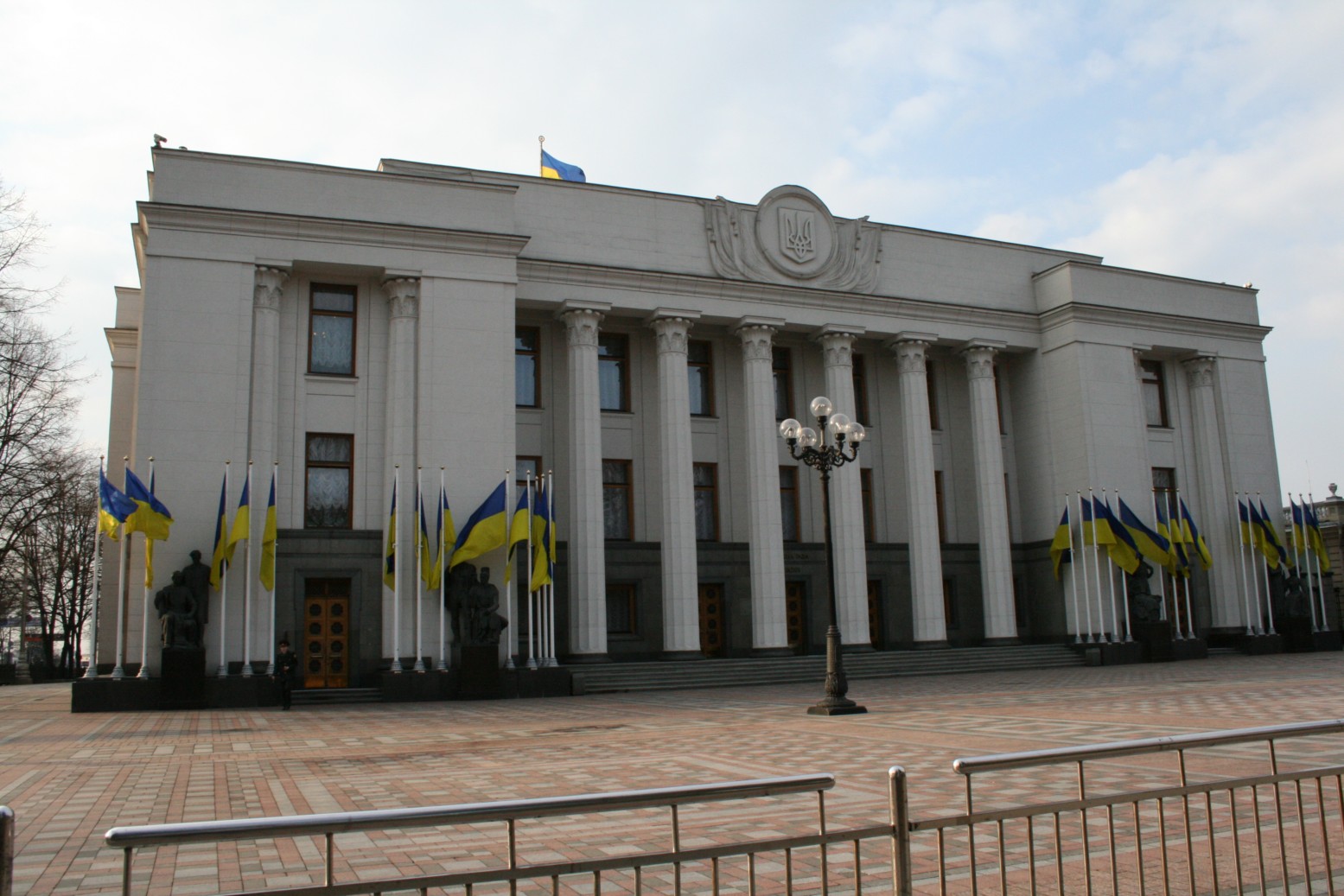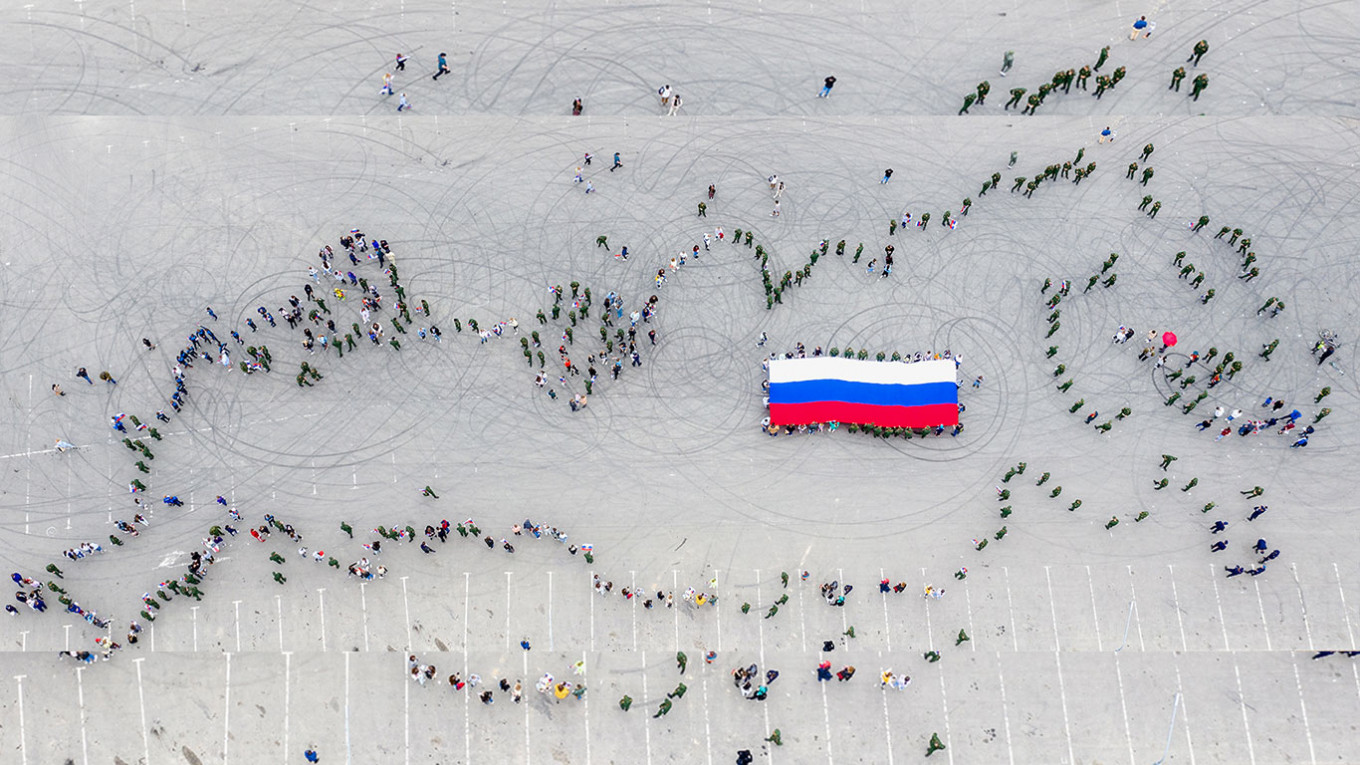
Belarusian State-Run TV Scores Propaganda Victories
Belarusian State-Run TV Scores Propaganda Victories
In his April 29 interview to Euronews, Belarus’s Foreign Minister Vladimir Makei had this to say about the crackdown on the protest movement that followed the August 9 presidential elections: “Perhaps the authorities sometimes acted too harshly. But this was an appropriate reaction to […] violent protest actions… In fact, a coup d’état was attempted after the elections… The fate of the country was at stake. And if we put the fate of the country on one side of the scale and the things you are talking about, including human rights, on the other, I am convinced that the leadership of every country would choose to preserve statehood and sovereignty” (Onliner, April 29).
Over the course of two days preceding Makei’s interview, Belarusian TV aired two films devoted to the events in question. The first is titled Overwhelming Minority (YouTube, April 27), in reference to a phrase once uttered by Alexander Statkevich, Belarus’s most seasoned political prisoner. According to him, as soon as the protest rallies involve 3.5 percent of the population (over 300,000 in the case of Belarus) the political regime will inevitably fall. It is this task—i.e., igniting the protest—that vlogger Sergei Tikhanovsky was chosen to fulfil, the movie asserts. Boisterous, boorish and self-confident, his tactics are described as pure incitement of violence; conspicuously, the televised special wholly ignores any legitimate reasons that might have given rise to popular discontent. One incident described in the film, however, may have raised even the protest sympathizers’ eyebrows. Namely, $900,000 of cash in bank packaging was apparently found during the authorities’ search of Tikhanovsky’s apartment. Whereas his wife and exiled opposition leader Svetlana Tikhanovskaya claimed the money had been planted, her mother-in-law insisted it did, in fact, belong to the family. And in an intercepted telephone call, which the movie presents, the two women discuss what the most believable explanation of the origin of that money might be. To many viewers, the fact that an opposition activist receives crucial support from external sponsors, which is what the incident is specifically made to look like, is a liability.
Titled To Kill the President, the second, two-part film is devoted to the Belarusian KGB’s “Operation Silence,” which uncovered the recently revealed alleged plot against Alyaksandr Lukashenka (ONT, April 28). According to the movie, the former Belarusian psychiatrist Dmitry Shchigelsky, now a United States citizen living in New York City, was the mastermind of the plot. In turn, its major coordinator was ostensibly Yury Zenkovich, a dual Belarusian and US citizen and a lawyer who ran a Minsk-based American Law Center. The political commentator Alexander Feduta acknowledges on tape that foreign sponsors would not finance a coup if only such personalities as himself and Grigory Kostusev, the chairperson of the Belarusian Popular Front, participate. The US connection was needed. The conspirators’ key goal, To Kill the President asserts, was then to locate protest-friendly Belarusian military personnel and enlist their support. Several meetings between Zenkovich and someone named “Ivan” from the Belarusian Ministry of Defense were carefully recorded by the KGB to uncover specific objectives, including killing the president and apprehending 30 key actors of the political regime. On two occasions, Zenkovich is shown to pass money to Ivan, who turned out to be a KGB agent. In both cases, the go-between was Olga Golubovich, an accountant in Zenkovich’s law center. In one case, the money was placed in a storage locker of the Minsk Central Bus Station; the other time, it was buried next to a designated bench at a Minsk cemetery.
Critics of To Kill the President have subjected the film to satirical ridicule. And indeed, many portions of the TV special hardly stand up to even light scrutiny or logic. For example, Professor Stanislav Knyazev, a retired ranking KGB officer, contends that 150 SUVs with machine guns were supposed to be used as part of the putsch. But how could such a large armed convoy even enter Minsk completely undetected? Additionally, in the film, Zenkovich comes off sounding more like an adolescent addicted to spy novels and computer games than a coup planner. He, for example assures Ivan that he enjoys the financial support of a cabal of 300 of the wealthiest American Jews. Why such inviduals would be interested in toppling Lukashenka in the first place is, of course, left unsaid.
Meanwhile, one of the major (if not the major) points made by To Kill the President—that United States government agencies stand behind the alleged coup attempt—appears flimsy at best. At one point during the KGB-recorded meeting, Zenkevich acknowledges that should US authorities find out “what we are doing here” he could end up behind bars for 30 years and be assaulted or violated by fellow prisoners, so receiving a bullet from Sasha (Alyaksandr Lukashenka) might be a less painful outcome. “I will find connections with Langley [Central Intelligence Agency headquarters],” he promises in yet another episode. “Will,” of course, is a future tense verb, thus implying that such connections have heretofore been lacking. Likewise, Zenkovich’s acquaintance with former US Deputy Assistant Secretary of Defense Michael Carpenter, who is close to President Joseph Biden, comes across as one of Zenkovich’s braggadocios.
Two takeaways from the latter film, however, do appear unassailable. The first is that some sort of foreign sponsorship of the alleged coup attempt was, in fact, a reality. The second takeaway may help to flesh out the first one. While the entire team of conspirators rather resembles the Children of Lieutenant Schmidt (a collective nickname for a group of swindlers who appeared in the hugely successful satirical 1931 novel The Little Golden Calf, by Ilya Ilf and Yevgeny Petrov), their ham-fisted activities somehow ended up rendering critical support to Lukashenka at a time he needed it most—and to the Kremlin as well. As a result, Minsk’s counteroffensive vis-à-vis the mass protest movement received a second wind and the opposition once more appeared discredited; whereas integration with Russia gained more legitimacy and again accelerated.
As per Dzianis Melyantsou of the Minsk Dialogue, “Belarusian protests were convincingly portrayed to [President Vladimir] Putin as an anti-Russian and pro-Western force, seeking to tear off an important ally from Russia, thus weakening its western flank. All actions of the West worked in favor of such argumentation because it immediately sided with the protest and called on Russia to refrain from interfering” (Carnegie.ru, April 29). In that sense, “uncovering” the alleged coup was the icing on the cake.


